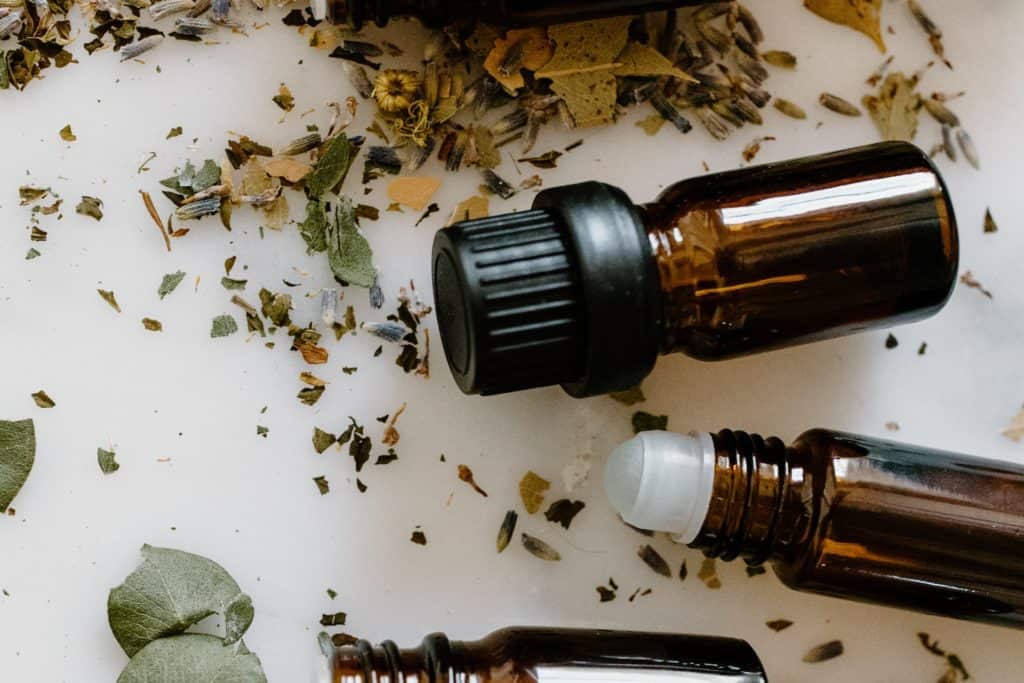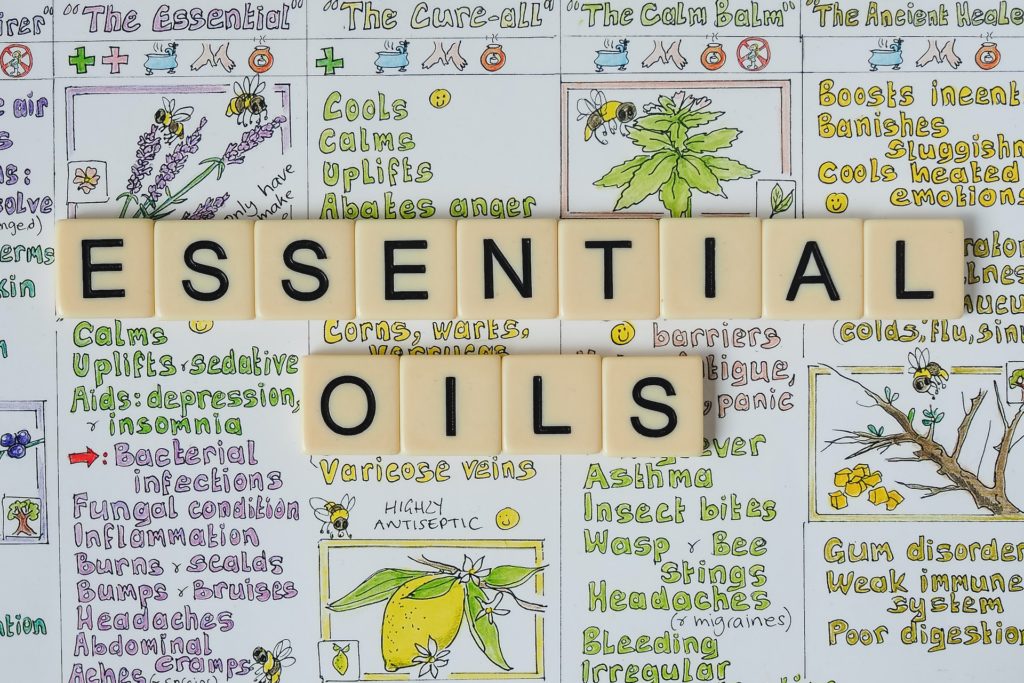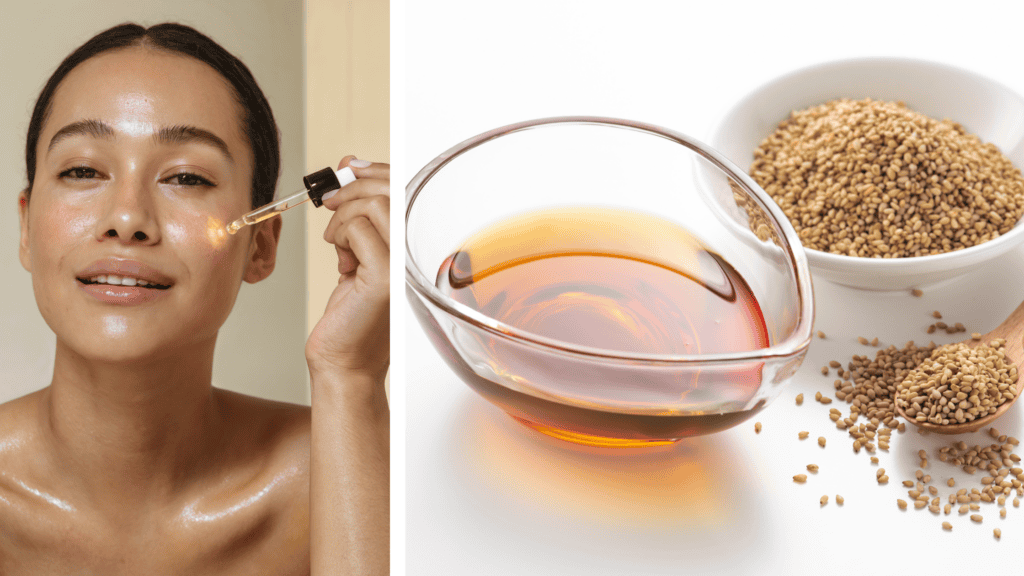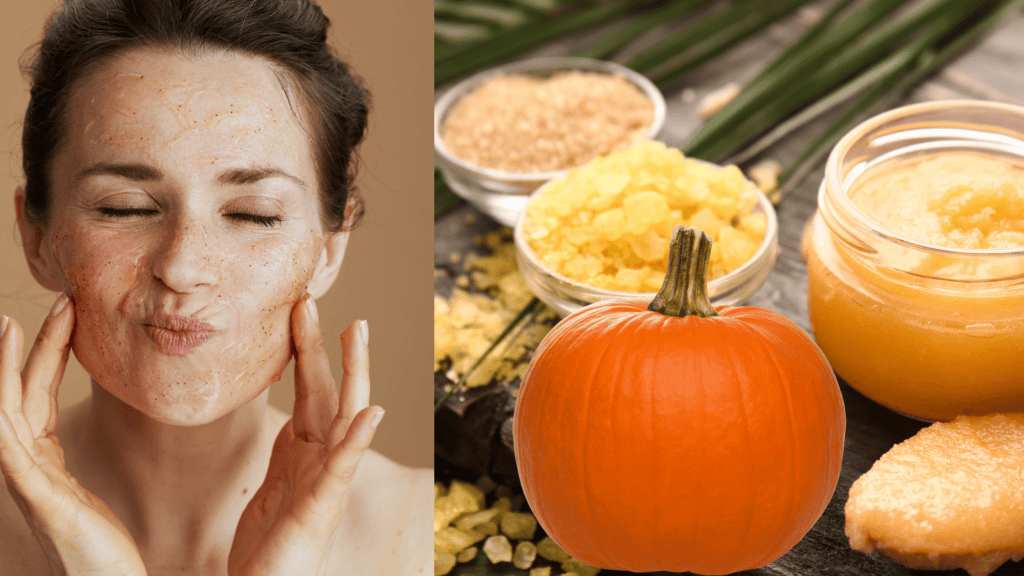We all know how important it is to have fresh breath. Not only is it essential for our hygiene, but it’s also vital for making a good impression on those around us. There are a lot of different products on the market that claim to freshen your breath, but many of them contain chemicals that can be harsh on your teeth and gums.
Your breath can reflect your overall health. If it is a persistent problem, no matter what you do, contact your dentist or doctor. In the meantime, one of the most effective ways to combat this problem is to use essential oils.
Essential oils are highly concentrated plant extracts with a wide range of benefits. They can be used for everything from skincare to relaxation. And when it comes to natural solutions for keeping your breath fresh, certain essential oils are particularly effective!

The Best Essential Oils To Freshen Breath!
We all want our breath to be fresh, but sometimes, it’s not as easy. Whether it’s morning breath, garlic breath, or just plain old bad breath, there are a few essential oils that can help; these include;
Peppermint Essential Oil.
Peppermint oil is one of the most popular options because it has a refreshing, minty smell. It’s also a natural antibacterial agent, which can help kill the bacteria that cause bad breath. Plus, its strong aroma can also help mask any bad smells.
Peppermint oil is also a natural astringent that can help to reduce inflammation and swelling in the mouth. Its effectiveness means it is found in almost all mouthwashes, toothpaste, powders, and natural flosses.
Peppermint oil is safe to use and has few side effects. The most common side effect is a burning sensation in the mouth. Always dilute the oil with a carrier oil such as olive or coconut.
Lemon Oil.
An excellent option for freshening your breath is lemon essential oil. Lemon oil has a fresh, citrusy smell that will wake you up in the morning. It’s also a natural astringent, which can help tighten the pores in your mouth and reduce the amount of saliva produced. This helps to reduce the number of harmful bacteria in your mouth and to keep your breath smelling fresh.
The lemon essential oil has antibacterial and antifungal properties, which make it an effective breath freshener by killing bacteria and preventing new bacteria growth.
Lemon essential oil is also a great way to whiten your teeth naturally. The citric acid in lemon essential oil can help remove stains from your teeth and brighten your smile!
Tea Tree Oil.
Tea tree oil has been used for centuries for its medicinal properties, including its ability to freshen breath. This essential oil is so effective at freshening breath that it’s used in many commercial types of mouthwash and toothpaste.
Tea tree oil is so effective at freshening breath due to its antibacterial properties, which help to kill the bacteria that cause bad breath. Not only does tea tree oil freshen your breath, but it also helps to keep your teeth and gums healthy by reducing the plaque buildup on your teeth. Plaque, a sticky substance harboring bacteria, can also lead to gum disease.
So, not only will using tea tree oil help freshen your breath, but it will also help keep your mouth healthy!
Look for Australian tea tree oil because it’s the most potent and is more likely to kill bacteria.
Anise Oil.
Anise essential oil is derived from the seeds of the anise plant. Anise has a sweet, licorice-like flavor and is used to flavor many foods and beverages, such as black licorice, cookies, and cakes. It is also a breath freshener and an effective ingredient in mouthwash and toothpaste.
Anise essential oil contains anethole, an aromatic compound with antibacterial, antimicrobial, and antifungal properties. This makes it an effective remedy for bad breath and other oral health problems.
In addition to these properties, anise essential oil has a refreshing and cooling effect on the mouth and throat. This can help to freshen breath and reduce the incidence of Halitosis.
Anise essential oil is available for purchase in a variety of forms. It can be purchased as an essential oil, tincture, or in capsules. It is important to read the labels carefully and follow the directions provided for use.
When using anise essential oil for fresh breath, starting with a small amount and gradually increasing the amount used is crucial. This will help to avoid any adverse reactions. Anise essential oil is a safe and effective way to freshen your breath, but if you experience adverse reactions, discontinue use immediately and consult a healthcare professional.
Clove Oil.
Clove oil has a long history of use as a breath freshener. It was traditionally used in India to freshen the breath before meeting someone important.
This oil has a strong, spicy smell that can help to mask bad breath. It contains eugenol, a natural antiseptic, and has antibacterial properties that can help to fight the bacteria that cause bad breath.
Clove oil is also a natural pain reliever. If you have a toothache, apply a few drops of clove oil to a cotton ball and hold it against the affected tooth. The pain should start to subside within a few minutes.
Cinnamon Essential Oil For Fresh Breath.
Cinnamon oil is a natural breath freshener with a strong, sweet, and spicy fragrance that can help keep your mouth clean. It helps to mask the smell of garlic and other strong-smelling foods.
Cinnamon oil also has antibacterial and antifungal properties that kill odor-causing bacteria and help fight gum disease. It can also help to reduce inflammation and pain in the mouth.
Colds, flu, and other viral infections can leave a bad taste and smell in the mouth. Cinnamon essential oil is antiviral, so it is a great oil to help eliminate viruses and reduce their odor!
Bad breath caused by smoking is helped by Cinnamon oil, as it can help to reduce the amount of tar and nicotine in your mouth. Cinnamon chewing gum is famous for this reason, but a dab of cinnamon oil on your toothpaste will do the trick.
Look for mouthwash, toothpaste, and powders containing Cinnamon oil.
Oregano Oil.
Oregano oil is another excellent oil for oral care. It has natural antibacterial and antiviral properties that kill off odor-causing bacteria. These properties make it great for fighting tooth decay and gum disease and also help ease tooth pain.
Oregano oil is also a natural astringent, which helps tighten the pores in your mouth and throat, preventing bad breath. It is also a natural expectorant; it loosens mucus and phlegm in your throat, which can also help prevent bad breath.
Oregano oil contains a compound called carvacrol. This compound is responsible for the antibacterial and antifungal properties of oregano oil. Carvacrol is a powerful breath freshener responsible for killing off bad-smelling bacteria.
Eucalyptus Oil.
Eucalyptus oil is known for its anti-inflammatory, antibacterial, and antifungal properties. It is an effective breath freshener because of its strong, minty aroma. This essential oil can be found in many commercial breath mints, gum, and toothpaste. A few drops of eucalyptus oil on your toothbrush or in your mouthwash can help to freshen your breath.
Eucalyptus oil is a popular ingredient in many home remedies for bad breath. Gargling with a eucalyptus mouthwash or adding a few drops of eucalyptus oil to your toothpaste are effective ways to fight bad breath.
Eucalyptus oil is an excellent choice as a natural way to freshen your breath. This essential oil is safe, has a refreshing, minty taste, helps reduce inflammation and swelling in the gums, and has antiseptic properties that can help fight off odor and infection!
Lavender Oil.
The properties of lavender oil make it an effective breath freshener. A big reason lavender oil is so effective at freshening breath is that it contains linalool. This natural compound has been shown to have potent antibacterial properties.
Not only does lavender oil kill bacteria, but it also helps mask the odors they produce. A study found that linalool could kill up to 99.9% of the bacteria that cause bad breath! So, if you’re looking for a natural way to freshen your breath, lavender oil is a great option.
Lavender oil is a soothing oil that helps reduce inflammation and irritation in the mouth and is also known for its ability to soothe the throat and ease coughing. Use it in a gargle to help reduce inflammation and relieve sore throat symptoms, which can be responsible for giving off a foul odor in the mouth.
Add lavender oil to mouthwash and toothpaste, and use it in steam inhalations to open up and clear the airways, which will also help to freshen the breath.
How Do You Use Essential Oils To Freshen Your Breath?
You can use essential oils in many ways to keep your breath fresh. Please make sure they are food-grade.
- One way is to add a few drops to your natural toothpaste. This will help to freshen your breath as you brush your teeth.
- Add a few drops to a glass of water and swish it in your mouth for 30 seconds.
- Put a few drops into a cotton ball and inhale it through your nose.
- You can also add a few drops to a small amount of baking soda and use it as toothpaste.
- Finally, add a few drops of the oil to a diffuser and inhale the vapors.
- Make a mouthwash. Add a few drops to a cup of water and swish it around your mouth for 30 seconds.
- Make homemade toothpowder, and include a few drops.
- Add a few drops to an oil-pulling recipe that whitens your teeth and freshens your breath!
These are just a few ways you can use essential oils to freshen your breath. Experiment and find the method that works best for you.
As you can see, essential oils are versatile and make great fresh fresheners. Don’t just keep your essential oils for their aromatic qualities; they have many unique properties, from anti-aging skincare to growing hair and freshening the breath!
This post contains affiliate links. If you purchase using these links, we may earn a small commission, which will not affect your sales!
Glowitgreen.com is a member of the Amazon affiliate program.




